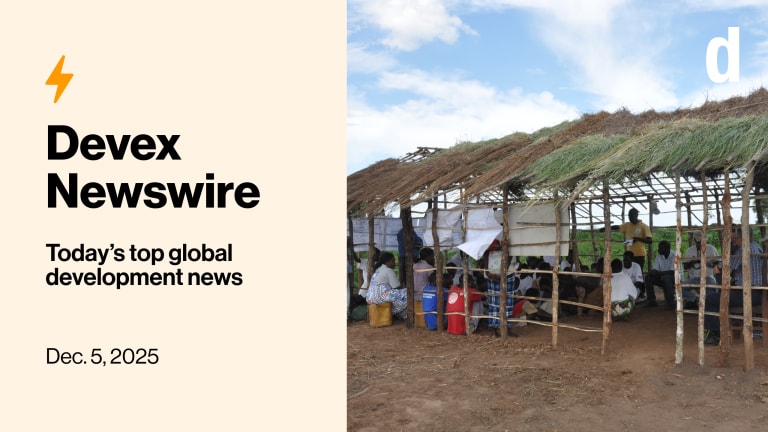
LONDON — The former head of the U.K. Department for International Development, Clare Short, said she thinks the government is more likely to scrap the 0.7 percent spending target for aid than allow DFID to be merged with the Foreign & Commonwealth Office.
Her comments come after some members of the Conservative Party have been pushing a proposal to roll DFID back into FCO. Current Secretary of State Penny Mordaunt has appeared reluctant to defend her department’s independence, sparking fears among civil society groups about its future.
“If [Britain] messes up its development capacity then it really is even further diminished.”
— Clare Short, former secretary of state, DFIDShort, who oversaw DFID when it gained full departmental status, told Devex that she doubted DFID and FCO would be merged because the U.K. will want to preserve its good reputation for development post-Brexit. FCO has a poor track record in managing aid compared to DFID and so merging the departments could compromise this positive reputation, she said.
“You never know these days, but I think [a merger] it’s unlikely to happen,” Short said before going on to explain that “Britain is so diminished with Brexit … and one of its foreign policy ‘claims to fame’ is its development expertise and budget ... if it messes up its development capacity then it really is even further diminished.”
However, the former DFID chief, who held the office from 1997-2003, said that the government may seek to reverse the U.K.’s legal commitment to spend 0.7 percent of gross domestic product on aid, which was made a legally binding target in 2015.
The target goes against the “instincts” of the Conservative Party, she said, adding that the ring-fenced aid budget has only survived this long because the government has such a small majority.
“The other thing that could happen is the removal of the legislative commitment to 0.7 [percent]. And I think it would have happened before if Parliament wasn’t so hung,” the former Labour politician said in an interview with Devex on Wednesday before speaking at an event on advancing women’s political leadership held at the International Growth Center at the London School of Economics.
“I think that is more likely to happen than it being handed over to the Foreign Office, frankly,” she added.
Cutting DFID’s budget would not necessarily be a bad move, Short said, explaining that the hostility toward the 0.7 percent target has made the department less effective.
“Having a guaranteed rising budget when everything else is being cut has led to a massively hostile environment towards Britain’s development efforts ... from the media and a lot of the governing party, and it’s made the department so defensive that I think the quality of its work has diminished,” she said.
“Of course I’m in favor of having a big [aid] budget but ... the hostility has been very destructive in that the department has lost creativity,” Short added.




